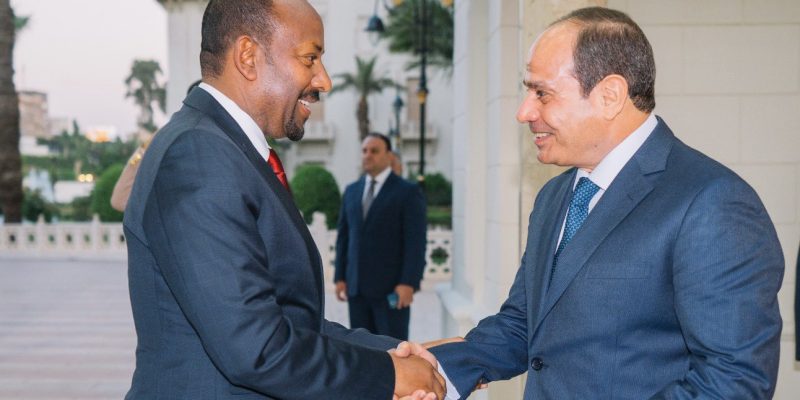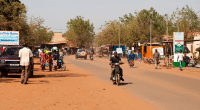Are we on the verge of a solution to the dispute between Egypt and Ethiopia over the Grand Ethiopian Renaissance Dam (GERD)? At least that is the wish of the leaders of the two countries, who hope to reach an agreement in four months' time.
During a regional meeting on the war in Sudan, Ethiopian Prime Minister Abiy Ahmed and Egyptian President Abdel Fattah el-Sissi discussed the issue of the Great Ethiopian Renaissance Dam (GERD). At the end of their discussions, the two leaders issued a joint statement on the “fast-track negotiations”, which should be completed within four months.
This significant step forward was immediately welcomed by the African Union (AU) through the voice of Commission Chairman Moussa Faki Mahamat, who congratulated the leaders of the two countries. The talks that began focused on how Egypt and Ethiopia will resolve future differences. As well as the amount of water that Ethiopia will release downstream in the event of a prolonged drought. And this is a key issue, since Ethiopia, like other countries in the Horn of Africa, has been facing a drought for more than 4 years.
A binding agreement?
For Ethiopia, the Gerd is an essential project for developing its installed capacity and supplying the electricity it needs to keep its economy growing. For its part, Egypt still sees the construction of a reservoir on the tributaries of the Nile as an “existential threat”. The country of 110 million people depends on the Nile for 80% of its water supply. At least 85% of the Nile’s water flows from the highlands of northern Ethiopia.
Read also- ETHIOPIA: Unit I of the Renaissance Dam inaugurated with great fanfare
The aim of the talks is precisely to find common ground, although questions remain, notably about the mediation of the AU, as desired by Ethiopia, or about the need for a binding agreement, as demanded by Egypt and Sudan, the other beneficiary country of the Nile waters, which is contesting the construction of the Gerd. In the meantime, Addis Ababa is pressing ahead with this $4.5 billion mega-project.
In January 2022, Ethiopia began production tests on its power plant after filling its dam, which can hold 79 billion m3 of water. The first two 700 MW units are gradually being commissioned. Once fully operational, the Gerd will have a capacity of 5,250 MW, i.e. almost twice the installed capacity of a country like Kenya (2,819 MW).
Jean Marie Takouleu







